8 Signs of a Bug Infestation You Should Never Ignore, Exterminators Say
These small red flags in your home could mean you have a big problem brewing.
When we think of having insects in our homes, we probably conjure up images of ants marching through doorways or fruit flies swarming in the kitchen. However, the signs that your home is harboring hundreds—or even thousands—of bugs that can cause serious damage may not be apparent until it's too late. If you want to avoid costly exterminator fees and even more expensive repairs, read on to hear from pest experts and exterminators about the signs of a bug infestation you can't afford to ignore.
READ THIS NEXT: 9 Cleaning Habits That Are Attracting Spiders to Your Home.
1
You notice woodpeckers near your home.
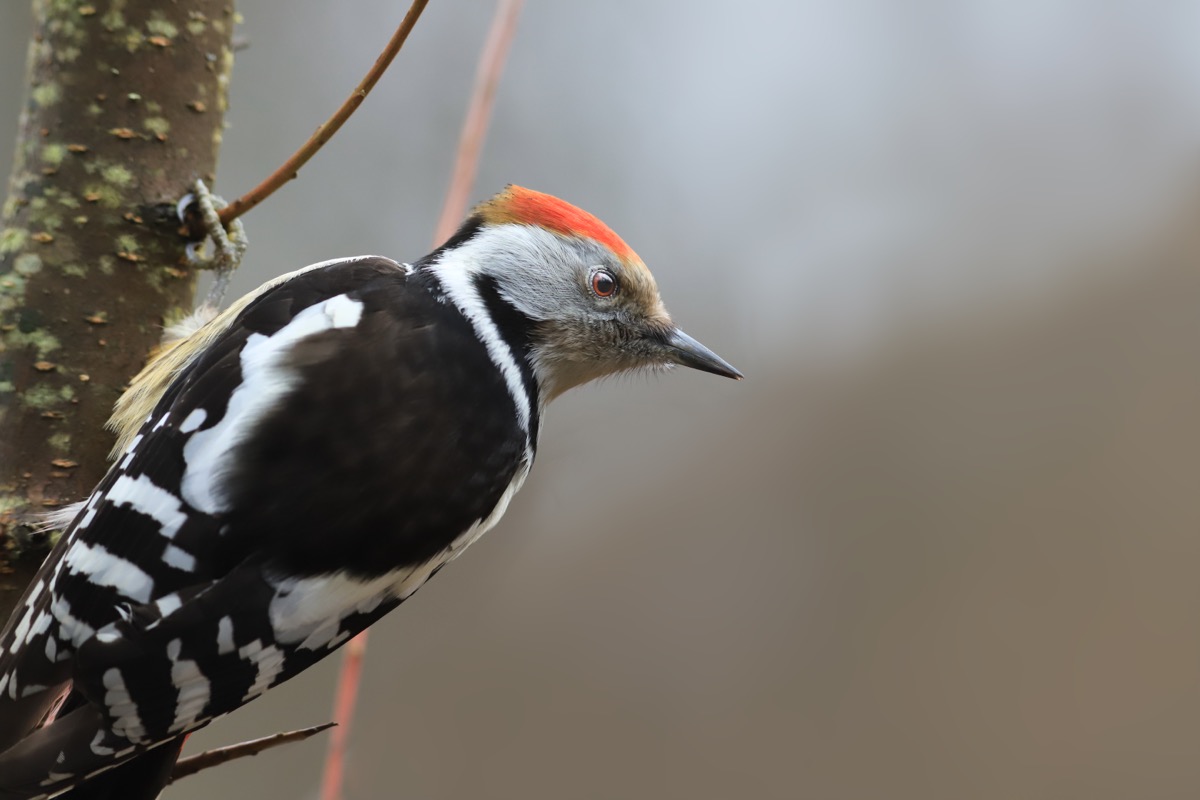
It's not always bugs themselves that signal their presence in your home—in many cases, it's the animals that prey on those insects that will tip you off to an infestation.
"If you spot woodpeckers pecking at your home, deck, or other structures, it can be a sign you have carpenter bees," says board-certified entomologist Natasha Wright, technical director at Braman Termite & Pest Elimination of Southern New England.
Wright says that people should look for perfectly round holes in their woodwork, which are telltale signs that carpenter bees have already infiltrated the woodwork in or surrounding a home.
2
You find sawdust around your baseboards.
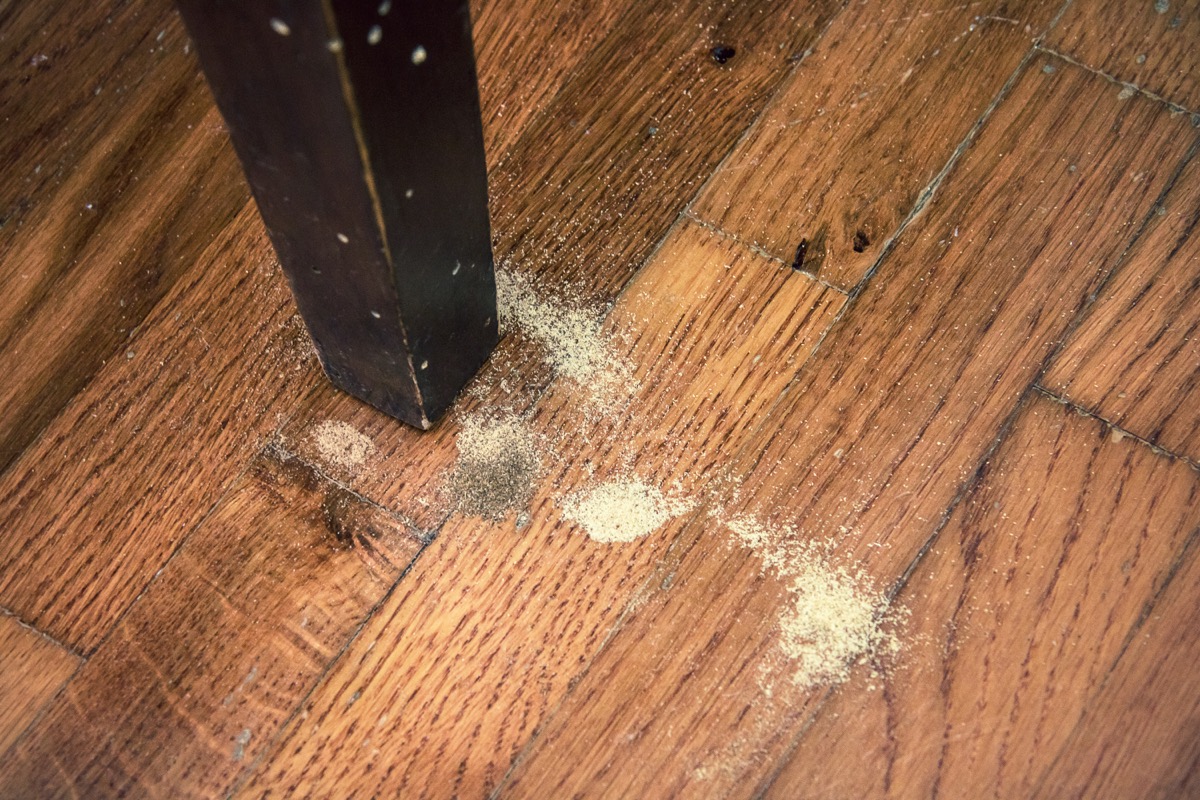
If there hasn't been any recent construction done on your home, but you're still finding piles of sawdust around your space, you may be dealing with a carpenter ant infestation.
"Carpenter ants don't actually eat wood; they excavate it to create their nests, which can cause a lot of structural damage to a home or building," says Wright.
"Unlike termite signs, these piles [created by carpenter ants] are closely related to sawdust and often found indoors, where termites leave a more mud-like consistency and traditionally are found around your perimeter or in the crawlspace," explains Dan Rottler, owner of Rottler Pest Solutions in St. Louis, Missouri.
3
You hear rustling at night.

The good news? That rustling you hear in your walls at night isn't necessarily a sign you've got a rodent problem. The bad news? It may be an indication you have a carpenter ant infestation.
"You may actually be able to hear this species at work as a faint rustling sound behind your walls, especially at night when they are most active," Wright notes.
She says that if you tap on a piece of wood in your house and it sounds hollow, that may be yet another sign carpenter ants have infiltrated.
READ THIS NEXT: 5 Things You're Buying That Bring Bed Bugs Into Your House, Experts Say.
4
You find spots on your sheets.

Those spots on your sheets may be more than just an indication you need to wash your linens more often.
"One of the biggest telltale signs of bed bugs are bloodstains on your sheets or pillowcases, or dark or rusty colored spots on your bedding or mattress, as well as the walls near your bed," says Bernard Buttone, COO at Triangle Pest Control, serving Raleigh and Charlotte, North Carolina. "Once you see these signs, that means you're already dealing with an infestation, so it's time to act quickly."
If you're not sure about what you're seeing, Diana Ludwiczak, a NYC-certified bed bug and pest inspector and owner of Doctor Sniffs Bed Bug Dogs, says the dark spots will most likely "smear when you rub a wet Qtip over them" if they're from bed bugs.
5
You notice a lot of spiders in your home.
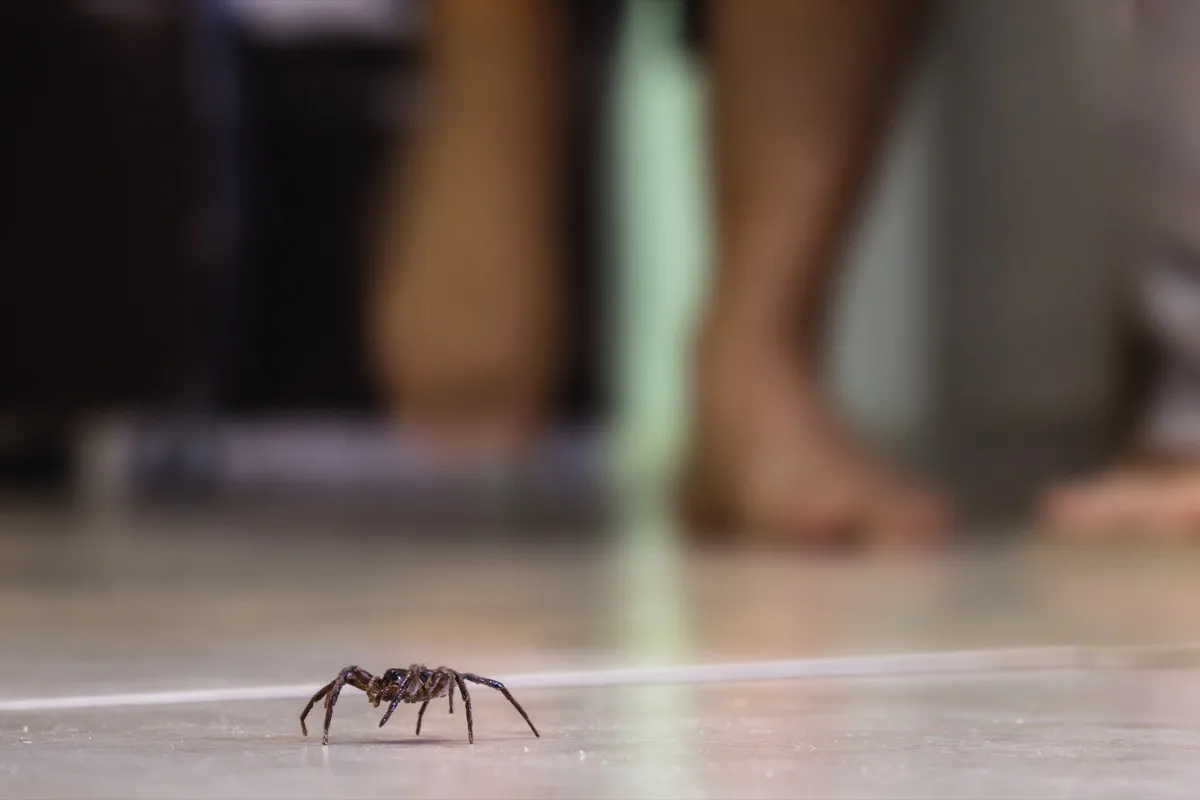
Seeing a large number of spiders in your home may make you think you have an arachnid infestation, but the real issue may be far worse.
"Having lots of spiders around your household doesn't mean that you have a spider infestation," says entomologist Nicholas Martin, PhD, founder of Pest Control Hacks in Oklahoma City. "Logically, spiders won't gather in a place without food, which means that a large number of them is a true sign your house is infested with something else."
While spiders frequently eat flies, moths, and mosquitoes, they're also known to eat termites and cockroaches, so you may want to hire an exterminator to make sure you don't have a larger infestation on your hands.
6
You find wings around your home.
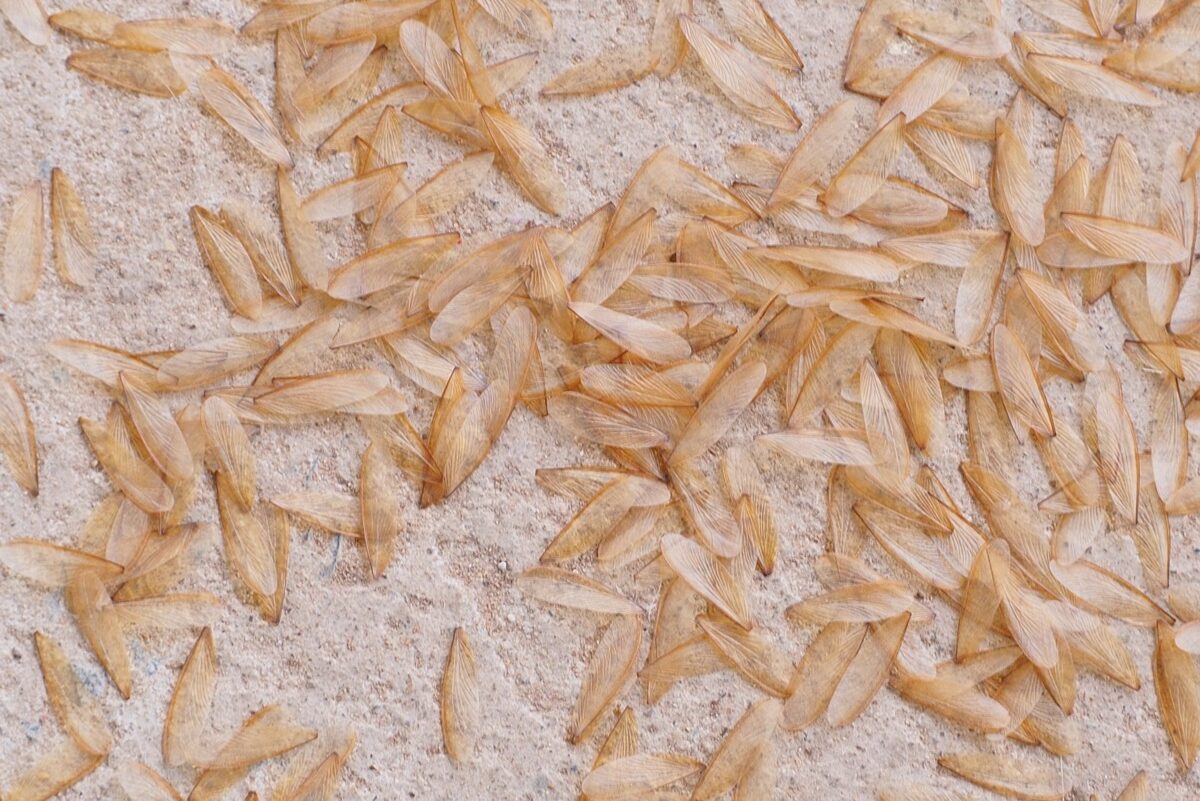
If you've been noticing stray pairs of bug wings around your home on a regular basis, there are likely hundreds more where those came from—and you can't waste any time before calling an exterminator.
"After termites reproduce, they shed their wings, and the whole colony often sheds them into a semi-neat pile of wings," says Eric Hoffer, president of Hoffer Pest Solutions, serving Southeast Florida. "If you see this pile, that means termites are very close so you'll have to act fast to limit or prevent any damage."
For more pest advice delivered right to your inbox, sign up for our daily newsletter.
7
You spot dead bugs.
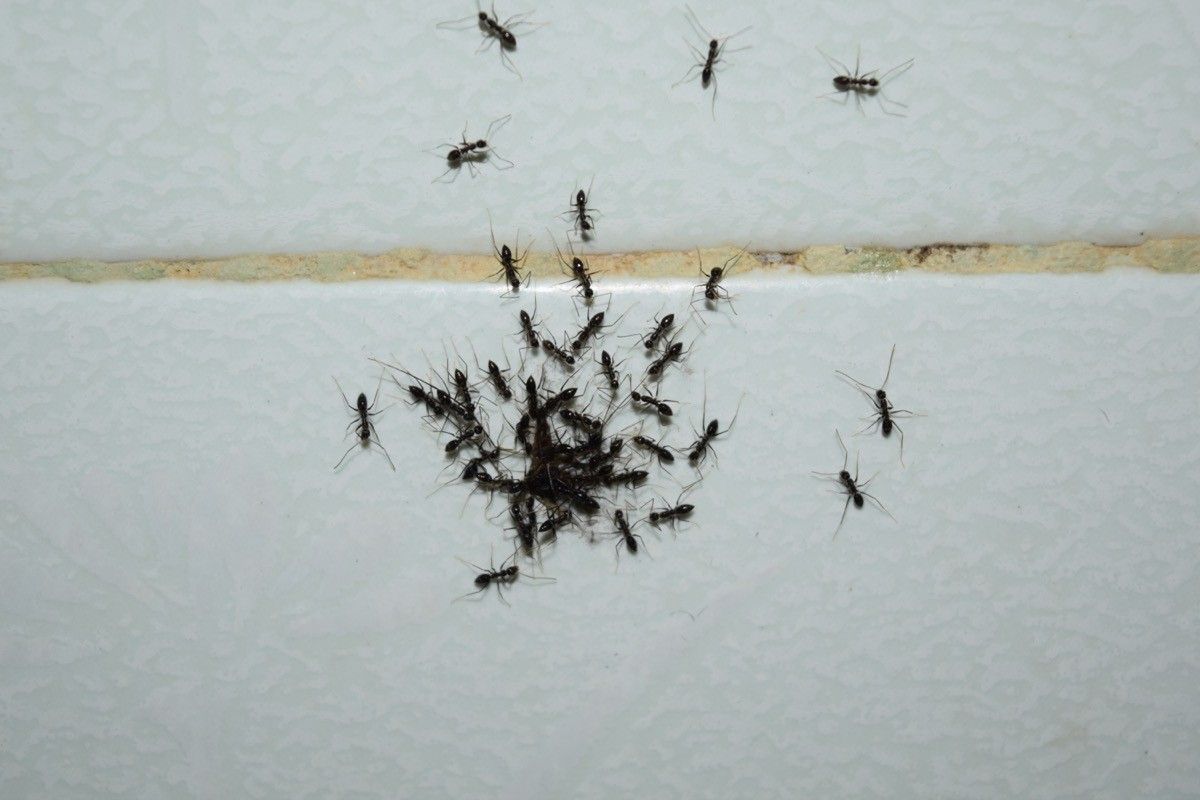
This might sound obvious, but it's easy to dismiss dead bugs as a sign that you don't have to worry. On the contrary, since insects have such a short life span, any infestation will result in collections of dead bugs.
"Many ants will actually pile up their dead in a sort of junkpile, which for carpenter ants is a pretty obvious sign of an infestation," explains Charles van Rees, conservation scientist and editor-in-chief of Gulo in Nature. "Insects that are using your house as a winter shelter, for example, might also pile up dead around windows where they have tried to get out when conditions were warmer. Ladybugs and stinkbugs will often turn up this way."
8
You see black flakes near your dog's bed.

If you have a dog, you probably know to check their fur and skin for brown or black dots that can be fleas, especially if they're scratching themselves. But according to Ludwiczak, you should be looking for this bug's droppings, too.
"One of the most common signs is black flakes that are actually flea droppings." She says that while you may still find them on your pet's body, they could also "be around their bedding, or even in your bed." If you think your dog has fleas, contact your vet.






















